When it comes to preparing for a laboratory test, clear communication is vital to ensure that patients feel informed and at ease. This letter template is designed to guide you through the necessary steps and provide you with helpful tips to optimize your experience. Understanding what to expect and how to prepare can significantly impact the accuracy of your results and the overall process. So, let's dive in and explore how you can best prepare for your upcoming tests!
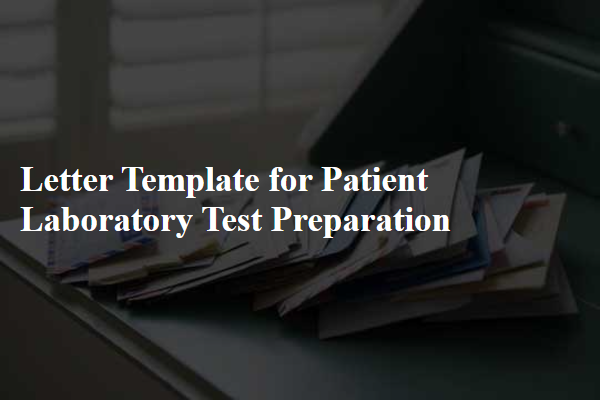
Clear instructions for fasting requirements
Fasting requirements for laboratory tests are critical to obtain accurate results. Most blood tests, including glucose and cholesterol screening, typically require at least 8 to 12 hours of fasting prior to sample collection. This dietary restriction generally means no food or drink, except for water, which is permissible. Significant variations may occur between different tests; therefore, it's important to follow the specific instructions provided by your healthcare provider or laboratory. For example, tests like lipid panels require fasting to accurately measure triglycerides and cholesterol levels. Patients scheduled for tests should plan accordingly to ensure they arrive at the lab in a fasting state to avoid potential retesting. Preparation conducted well can aid healthcare professionals in diagnosing conditions like diabetes mellitus or cardiovascular diseases with greater precision.
Detailed list of necessary documents
Preparation for patient laboratory tests necessitates various essential documents to ensure a smooth process. Patients must bring a valid government-issued photo identification (such as a driver's license or passport), which verifies identity and complies with healthcare regulations. Recent health insurance card (providing coverage information) should be presented to facilitate billing and claims submission. Healthcare provider's order form (including test specifics, physician's name, and contact details) must accompany the patient to ensure accurate testing procedures are followed. Patients may also need to submit previous lab test results (for comparison and reference), and in some cases, a completed consent form (indicating understanding and agreement to proceed with the test). If applicable, a list of current medications (including dosages) is necessary to inform laboratory personnel of potential interactions or conditions affecting results. Lastly, it is advisable to carry a notebook or digital device (for personal notes), which the patient can utilize to jot down questions or additional information provided by laboratory staff.
Guidelines on medication restrictions
Preparation for laboratory tests often involves specific medication restrictions to ensure accurate results. Patients should avoid medications such as anticoagulants, which include Warfarin and Heparin, as these can affect clotting test outcomes. Nonsteroidal anti-inflammatory drugs (NSAIDs), including Ibuprofen and Naproxen, may also interfere with certain blood tests and should be stopped at least 48 hours prior to testing. Additionally, certain supplements, like Omega-3 fatty acids and vitamin E, can impact lipid profiles and should be discontinued 72 hours before the test. Patients should consult healthcare providers for personalized guidance regarding the discontinuation of any prescription medications, over-the-counter drugs, or herbal supplements to achieve optimal laboratory test accuracy.
Contact information for questions or rescheduling
Laboratory tests require specific preparations to ensure accurate results. Patients must fast for 8-12 hours prior to blood draw, especially for glucose and lipid profiles. Hydration is important; drinking water is encouraged. Certain medications might need to be paused, depending on the tests ordered. Confirmation of appointment time at the laboratory, such as a local facility like LabCorp or Quest Diagnostics, is crucial. For any questions or to reschedule appointments, patients should contact the laboratory directly at the provided phone number, typically found on the appointment confirmation document or the laboratory's official website.
Reminder for appropriate attire and arrival time
Patients attending laboratory tests at facilities such as XYZ Medical Center should be aware of appropriate attire and arrival times. Recommended clothing includes loose-fitting garments that facilitate easy access to the arms or legs, especially for blood draws. Arrival should occur at least 30 minutes prior to the scheduled appointment for necessary documentation and initial assessments. Certain tests may require fasting (up to 12 hours for glucose tests), so preparations should be planned accordingly. Laboratory hours depend on weekdays only, generally operating from 7 AM to 5 PM.
Letter Template For Patient Laboratory Test Preparation Samples
Letter template of laboratory test preparation guidelines for individuals.
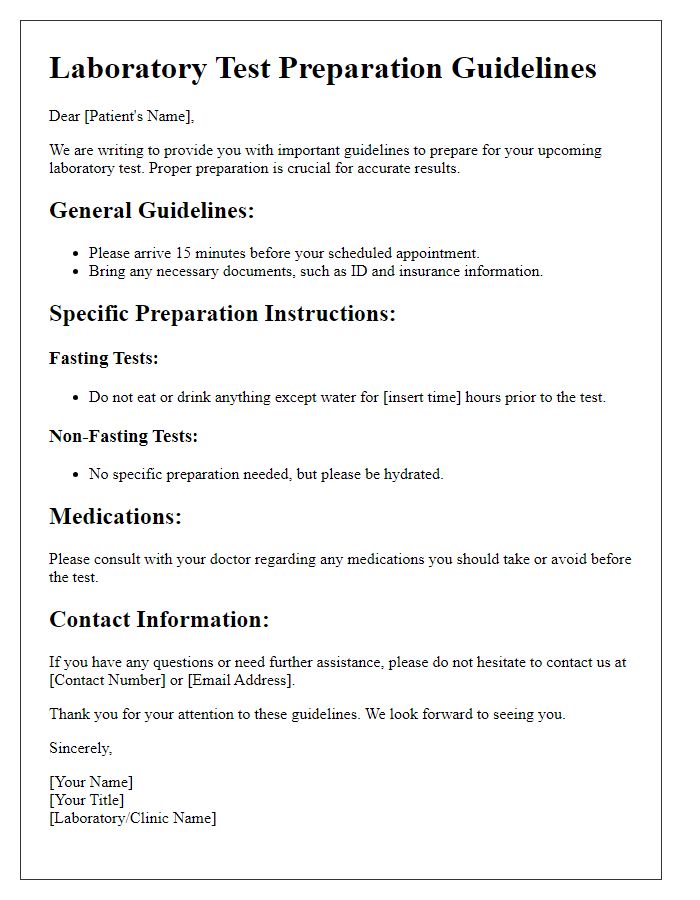
Letter template of patient-focused instructions for lab test completion.
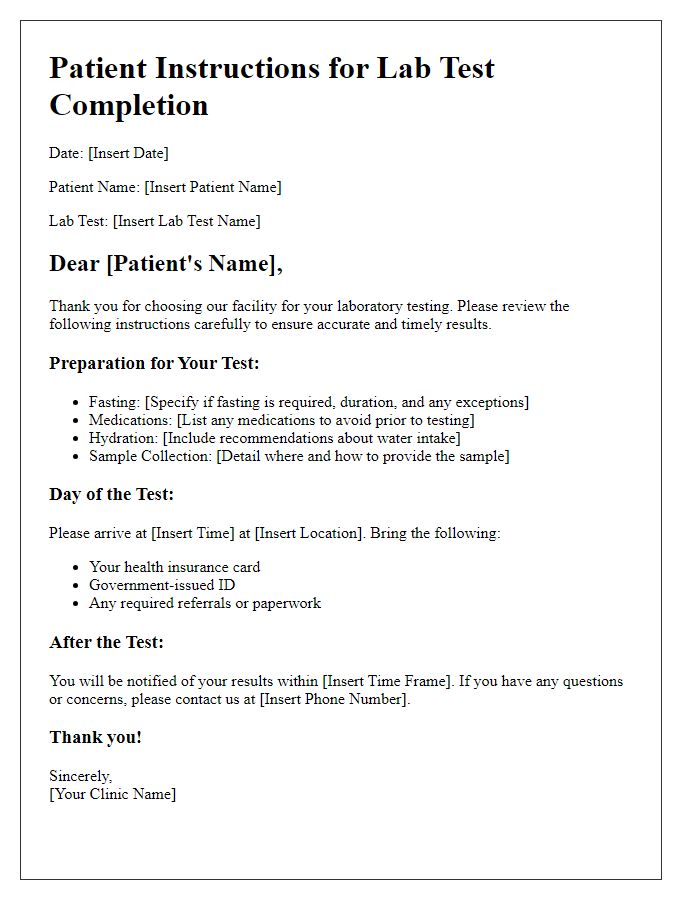

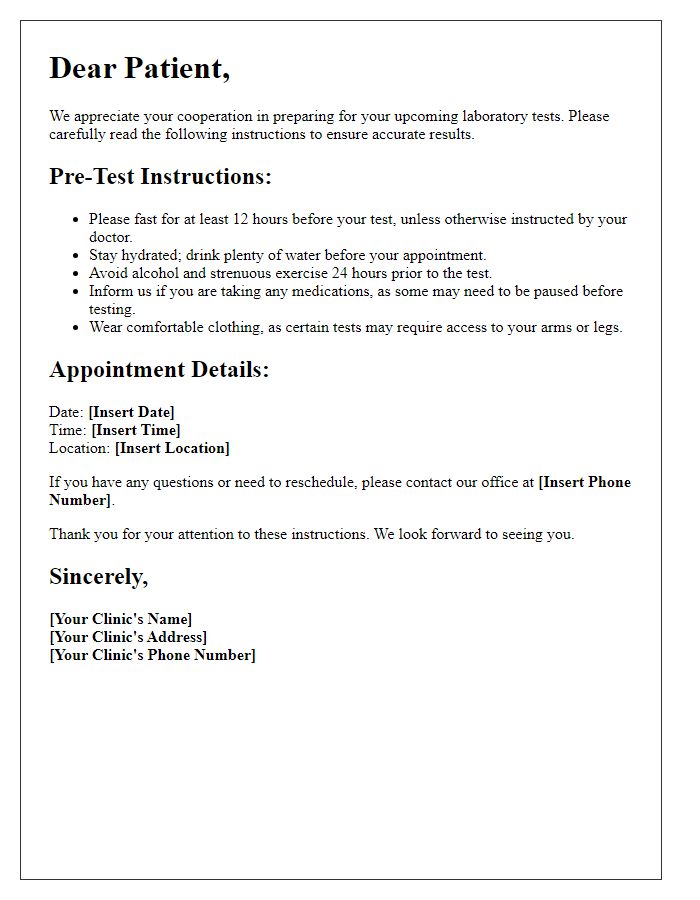
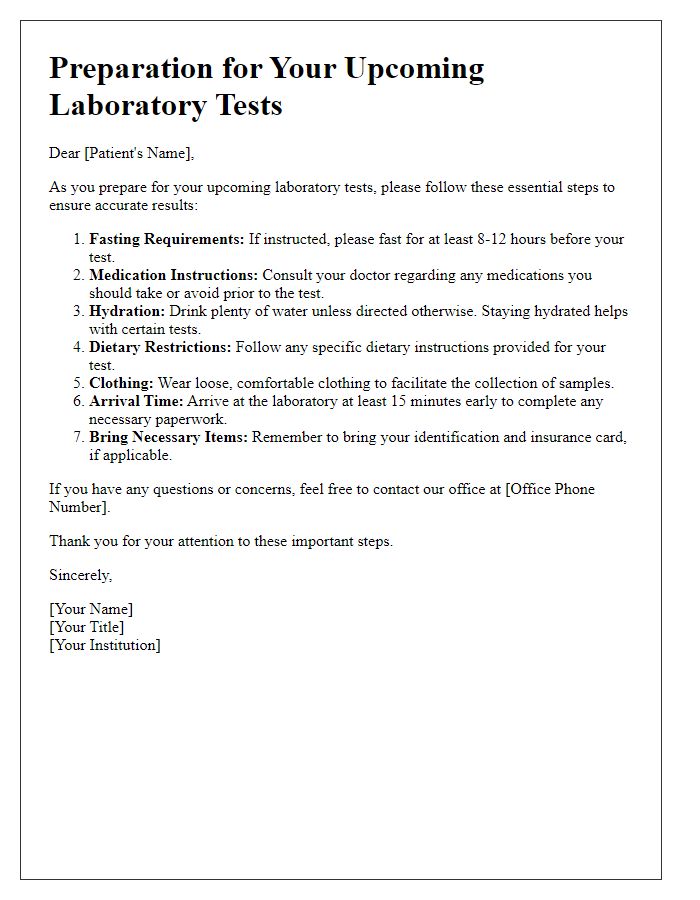
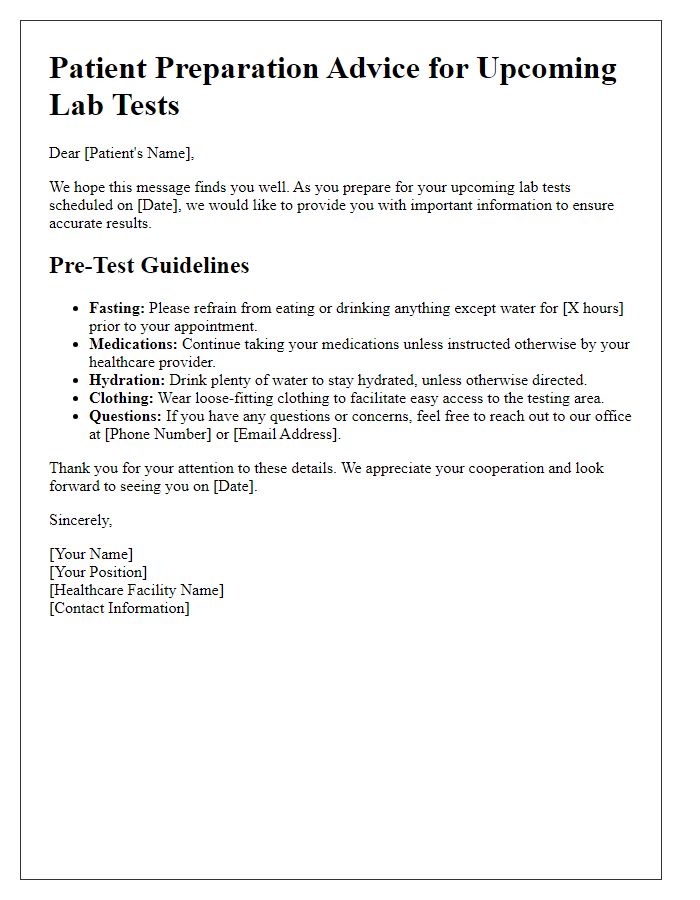
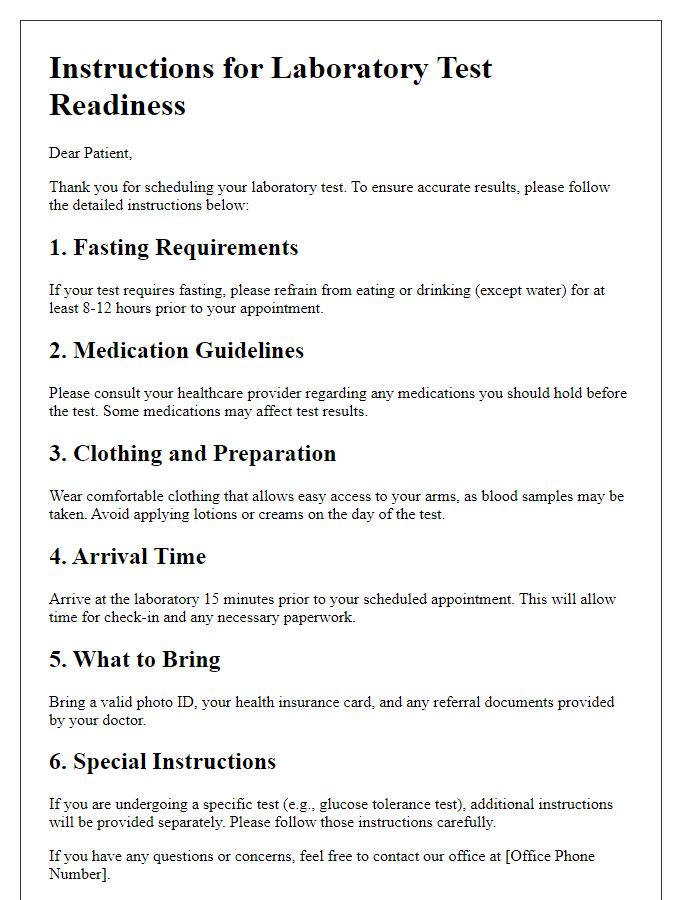
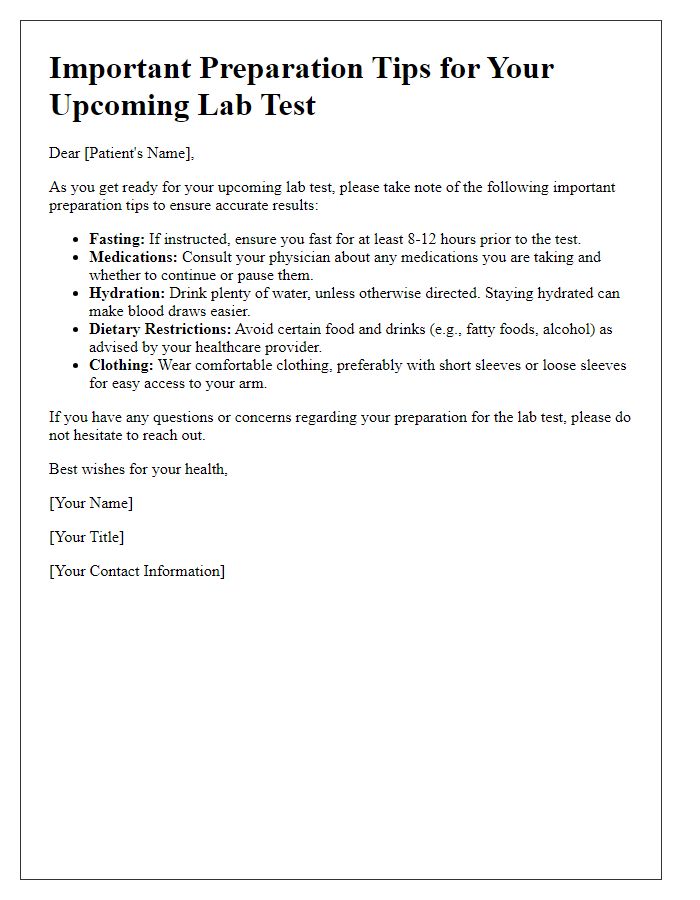
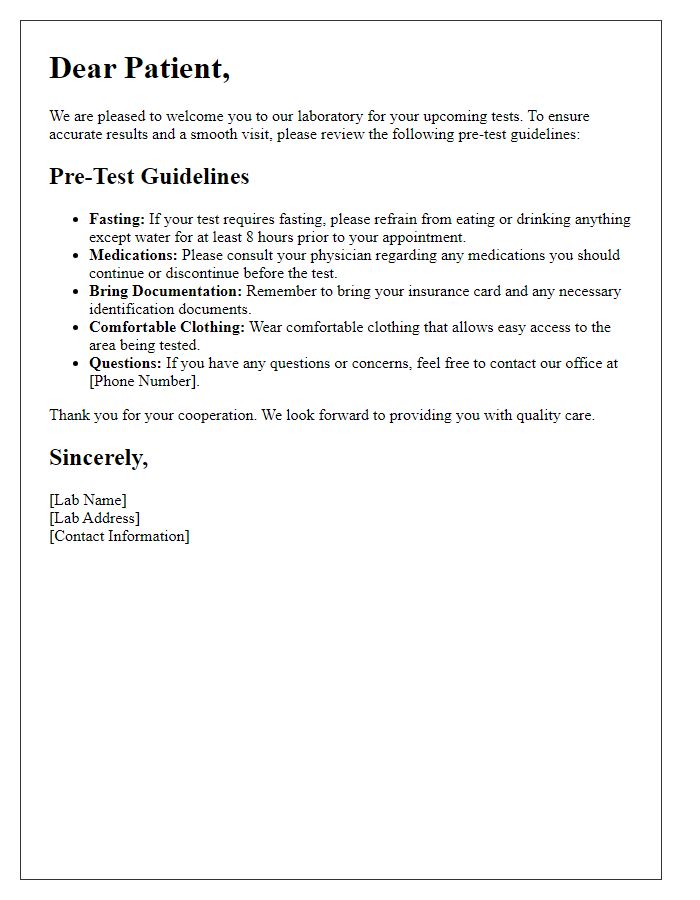
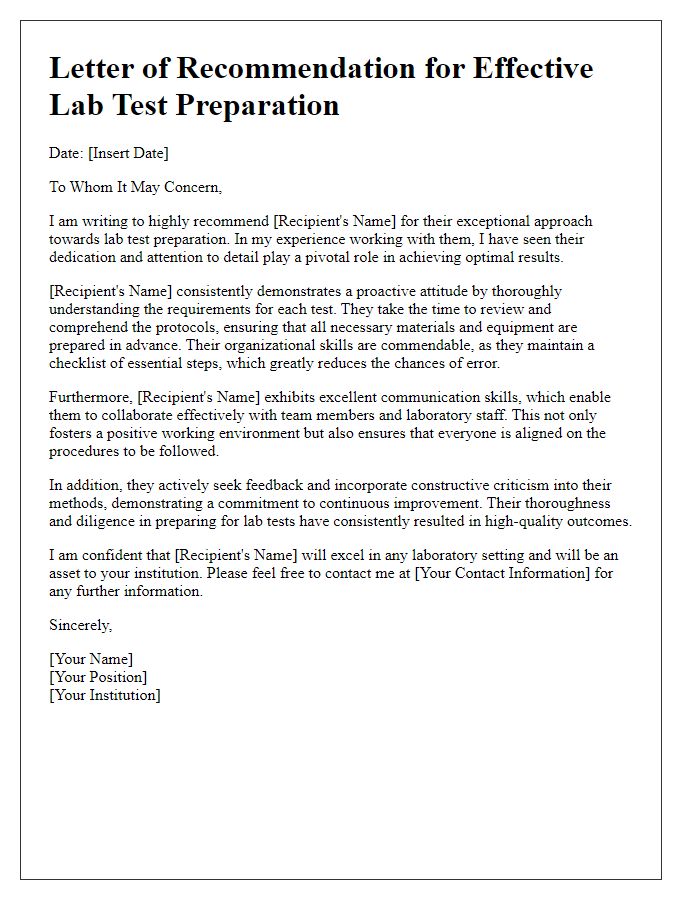
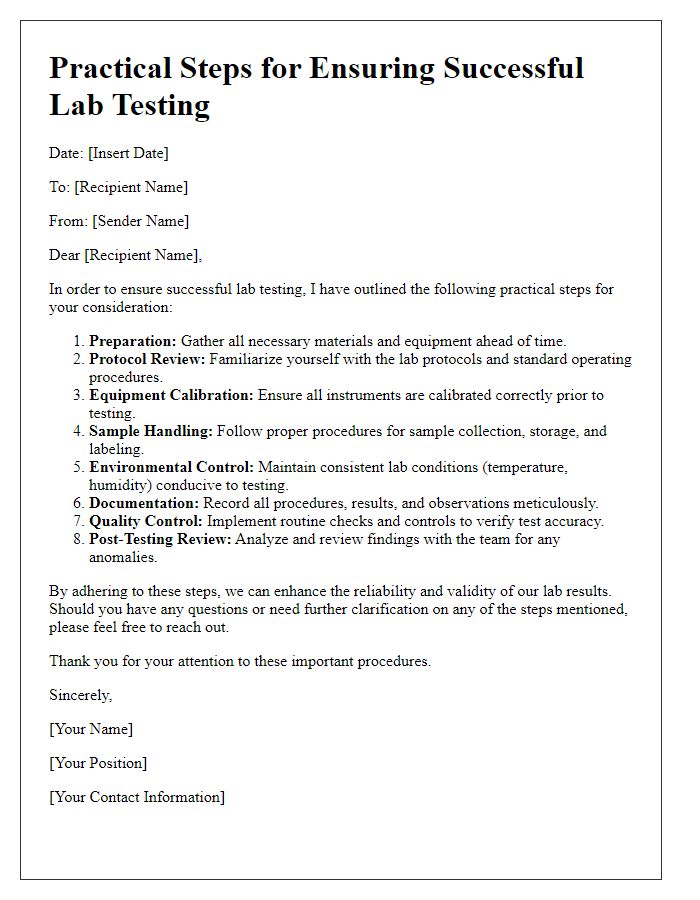

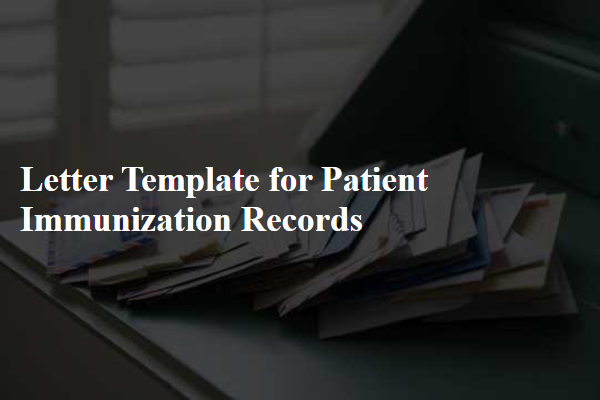
Comments